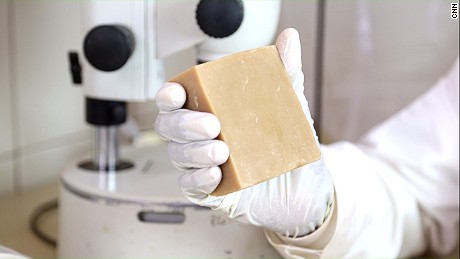
Health safety has taken new measures in Trans Nzoia county where its government announced plans to institute a ban on bars of soap found in all public areas within the county.
Bars of soap are a common sight at sinks in many restaurants and houses, but health officials in the county maintained that they pose a serious public health risk.One claim against bar soaps is the bacteria factor. Because people sometimes share the same bar of soap, fears concerning the transfer of bacteria emerge.
Enforcement officials are to be deployed to ensure compliance with the directive, with those found with soap facing stiff penalties and fines.

Past scientific research established that bar soaps in public places were often contaminated with bacteria.
Those bacteria are microbes capable of causing eye infections, skin infections, bladder infections and urinary tract infections. They can also endanger people with weak immune systems, or those recovering from surgery or serious burns.
Many owners of various establishments switched to using liquid soap from dispensers but, according to scientists, this also poses its own risks.
The Food and Drug Administration (FDA) an American equivalent of Kenya Bureau of Standards (Kebs) – in a statement published on its website on Friday September 2016, indicated that over-the-counter (OTC) wash products containing flagged ingredients should not be on sale given that manufacturers failed to ascertain the safety of users.

The decision targeted products containing one or more of 19 specific active ingredients, including the most popularly used ingredients – triclosan (liquid soaps) and triclocarban (bar soaps).
In a statement, Janet Woodcock, M.D., director of the FDA’s Center for Drug Evaluation and Research (CDER) said: “Consumers may think antibacterial washes are more effective at preventing the spread of germs, but we have no scientific evidence that they are any better than plain soap and water.”
However, the move did not “affect hand ‘sanitizers’ or wipes, or antibacterial products used in health care settings”.

With few establishments complying with public health guidelines,bulk soap dispensers end up getting contaminated in various ways.The bacteria that remains on the inside of the dispenser is quite resistant to bleach, and even a tiny amount, especially in the nozzle, is enough to recontaminate the liquid soap
However, studies have shown that although bacteria levels on previously-used bar soaps are slightly higher than on unused soaps, there have been no detectable levels of bacteria left on the skin’s surface after using the soap (source:Heinze). Bar soap users who are still worried about spreading germs can always make sure that each person has his or her own soap.
Even so the County government officials in Trans Nzoia maintained that the ban would go a long way in promoting proper sanitation and hygiene.